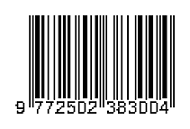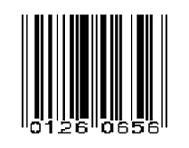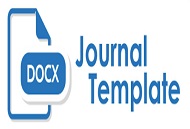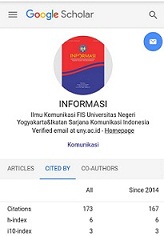Media and political campaigns for individual pairs of regional election winners in Rejang Lebong regency in 2020 during the Covid-19 pandemic
Pawito Pawito, Universitas Sebelas Maret, Indonesia
Ignatius Agung Satyawan, Universitas Sebelas Maret, Indonesia
Abstract
Keywords
Full Text:
PDFReferences
Adeiza, M. O. (2016). Digital media and campaign practices in Nigeria: Ekiti State Governorship Election (Doctoral dissertation).
Arsyad, A. (2011). Media pembelajaran. PT. Raja Grafindo Persada.
Bella, M., & Mody, W. B. G. B. (2002). Handbook of international and intercultural communication. Sage.
Bossetta, M. (2018). The digital architectures of social media: Comparing political campaigning on Facebook, Twitter, Instagram, and Snapchat in the 2016 US election. Journalism & mass communication quarterly, 95(2), 471-496. https://doi.org/10.1177/1077699018763307
Brady, H. E., Johnston, R., & Sides, J. (2006). The study of political campaigns. Capturing campaign effects, 1-26.
Creswell, J. W. (2015). Qualitative research & design research. Pustaka Pelajar.
Cui, G., & Liu, Q. (2001). Executive insights: emerging market segments in a transitional economy: a study of urban consumers in China. Journal of International Marketing, 9(1), 84-106.
Dalrymple, D. J., & Parsons, L. J. (1976). Marketing management: text and cases.
Febri, R., Suryanef, S., Hasrul, H., & Irwan, I. (2022). Kampanye politik melalui media sosial oleh kandidat calon kepala daerah Kabupaten Pesisir Selatan pada pilkada tahun 2020. Journal of Civic Education, 5(2), 269-277. https://doi.org/10.24036/jce.v5i2.630.
Filimonov, K., Russmann, U., & Svensson, J. (2016). Picturing the party: Instagram and party campaigning in the 2014 Swedish elections. Social media+ society, 2(3), 2056305116662179.
Firmanzah. (2018). Marketing politik: Antara pemahaman dan realitas. Yayasan Pustaka Obor Indonesia.
Gladwell, M. (2010). Small change. The New Yorker, 4.
Khalyubi, W., Bangun, C. D., Ardiyansyah, F., & Romadhona, M. R. (2021). Penggunaan Media Sosial sebagai Sarana Kampanye dan Partisipasi Digital dalam Pilkada Kota Depok Tahun 2020. Journal of Governance and Local Politics (JGLP), 3(2), 87-102. DOI: https://doi.org/10.47650/jglp.v3i2.241.
Kollat, D. T., Blackwell, R. D., & Robeson, J. F. (1972). Strategic marketing. Holt, Rinehart and Winston.
Kotler, P., & Roberto, E. L. (1989). Social marketing: Strategies for changing public behavior.
Kriyantono, R. (2006). Teknik praktis riset komunikasi. Kencana Prenada Media Group.
Lilleker, D. G., & Negrine, R. (2012). Mapping a market orientation: Can we detect political marketing only through the lens of hindsight?. In Winning elections with political marketing (pp. 33-56). Routledge.
Marcinkowski, F., & Metag, J. (2014). Why do candidates use online media in constituency campaigning? An application of the theory of planned behavior. Journal of Information Technology & Politics, 11(2), 151-168. http://doi.org/10.1080/19331681.2014.895690
McQuail, D., & Windahl, S. (2015). Communication models for the study of mass communications. Routledge.
Miles, M. B., Huberman, A. M., & Saldaña, J. (2018). Qualitative data analysis: A methods sourcebook. Sage publications.
Owen, D. (2017). Voters’ engagement in the digital campaign. The Internet and the 2016 Presidential Campaign, 151.
Patton, M. Q. (2002). Qualitative research & evaluation methods. sage.
Pawito. (2007). Penelitian komunikasi kualitatif. LKiS
Rogers, E. M., & Storey, J. D. (1987). Communication campaign. in CR Berger & SH Chaffe (Eds.), Handbook of communication science. New Burry Park.
Ulfa, K., Purnomo, E. P., & Kasiwi, A. N. (2020). The Campaign Strategy of 2019 Presidential and Vice-Presidential Elections on Social Media. Society, 8(2), 284-297.
Venus, A. (2018). Manajemen kampanye panduam teoritis dan praktis dalam mengefektifkan kampanye komunikasi. Simbiosa Rekatama Media.
Yin, R. K. (2009). Case study research: Design and methods (Vol. 5). sage.
Data Pengguna Internet dan Media Sosial di dunia DIGITAL 2022: ANOTHER YEAR OF BUMPER GROWTH - We Are Social UK.
PKPU Nomor 1 Tahun 2020 Tentang Perubahan Ketiga atas Peraturan Komisi Pemilihan Umum Nomor 3 Tahun 2017 Tentang Pencalonan Pemilihan Gubernur dan Wakil Gubernur, Bupati dan Wakil BUpati, dan/atau Walikota Dan Wakil Walikota. https:// PKPU 1 THN 2020.pdf.
Putusan Mahkamah Konstitusi Nomor 5/PUUV/2007, (2007). https://mkri.id/public/content/persidangan/sinopsis/sinopsis_perkara_114_5+PUU-V+2007.pdf.
UU No. 1 Tahun 2015 tentang Penetapan Peraturan Pemerintah Pengganti Undang-Undang Nomor 1 Tahun 2014 Tentang Pemilihan Gubernur, Bupati, Dan Walikota Menjadi Undang-Undang [JDIH BPK RI]
DOI: https://doi.org/10.21831/informasi.v52i2.55424
Refbacks
- There are currently no refbacks.
Copyright (c) 2022 Akbar Brilian Utama, Pawito Pawito, Ignatius Agung Satyawan
Supervised by
Our Journal has been Indexed by:
Informasi by http://journal.uny.ac.id/index.php/informasi is licensed under a Creative Commons Attribution-NonCommercial 4.0 International License.














